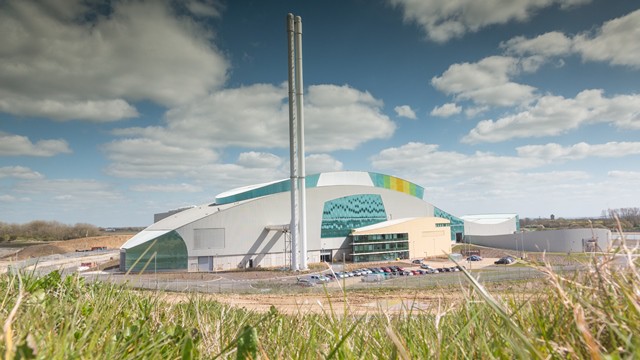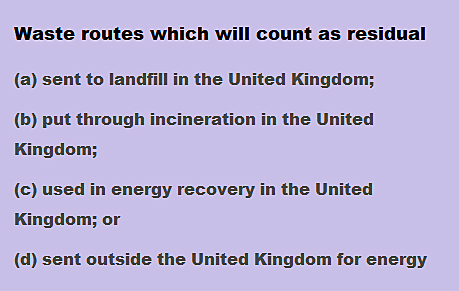Entitled ‘The Environmental Targets (Residual Waste) (England) Regulations 2023’, the regulations as a Statutory Instrument came into force on 30 January 2023. They are expected to have significant implications for waste policy and the development of recycling and residual waste facilities in future years.
The regulations, which extend to England and Wales, but apply to England come under the Environment Act 2021 which requires the setting of deliverable targets to help government improve the state of the environment on land and at sea. This includes having less waste alongside a more sustainable use of resources.
Reduction
The waste target is for the reduction of residual waste (excluding major mineral wastes) on a kg per capita basis by 50% by 2042 from 2019 levels. This will be measured as a reduction from the 2019 level, which was revised to 574 kg per capita following updated evidence received by the Department for Environment, Food and Rural Affairs after a consultation. Accordingly, the residual waste long-term target is that by the end of 31 December 2042 the total mass of residual waste for the calendar year 2042 does not exceed 287 kilograms per head of population in England. Reporting of the target results will be in 2044.
The regulations exclude as a waste ferrous metals removed from bottom ash, put through incineration or used in energy recovery and then sent for recycling. Defra said this is consistent with the reporting of ferrous metals in the ‘Waste from Households’ recycling rates.
Waste routes which will count as residual are:
(a) sent to landfill in the United Kingdom;
(b) put through incineration in the United Kingdom;
(c) used in energy recovery in the United Kingdom; or
(d) sent outside the United Kingdom for energy recovery.
The legislation says that “energy recovery” means any waste treatment, excluding anaerobic digestion, which generates energy such as electricity or heat or which converts the waste into other energy products such as fuels and substitute natural gas;
Per capita
Defra has also explained that: “Defining residual waste as ‘waste sent to residual end-of-life treatments’ and using ‘per capita’ units are the most objectively measurable approaches for the target scope. Furthermore, a target to reduce residual waste aligns with wider government priorities to maximise the value of resources and minimise the environmental impact of waste. Meeting the target will require tackling resource use both upstream and downstream.”
Useful link
Environmental Targets













Subscribe for free